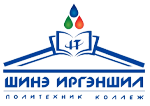We are hiring an Officer Emergency Response Team
2024-08-08
Duties and Responsibilities:
Identify the essential accountabilities of the role) and their purpose, and how the jobholder satisfies these. Considering the ‘people’, ‘planning’ and ‘technical’ aspects of the role may assist in identifying major accountabilities.
Indicate the % of time spent on each of the accountabilities – to be an indicative guide only.
Construct each statement to include:
- “What” – use an action verb to describe what action is being performed; avoid using adverbs such as ‘promptly’ or ‘effectively’ to describe responsibilities
- “How” – indicate how the action will be performed, use terms like “based on”, “by using” or “working with”.
- “Why” – indicate the reason the action is performed, and clarify what the goal is, how it will satisfy a need, who has the need and what it is.
- Indicate the level of responsibility for the employee (sole, leadership, or supporting role)
- Any duty that will involve less than 5% of the job is not normally considered a major duty. These duties are better addressed in a general statement at the end of the “work performed” section, such as "and performing other related duties".
In addition:
- Closely related activities should be grouped together as one major accountability
- Major accountabilities should be listed in order of importance
- Avoid gender or age based language
- Avoid understating or overstating responsibilities
- Providing professional emergency preparedness and response to all emergency incidents through effective and efficient firefighting and technical rescue services
- Always prioritizing the Safety of the team members and others
- Providing effective cooperation with all team members
- Supporting the ERT Supervisor and Superintendent
- Supporting, cooperating and working closely with the Fire Prevention Team and the company’s Fire Services Team
- Internal stakeholder engagement – building and maintaining good relationships with the management of all departments across the company
- External stakeholder engagement – building and maintaining good relationships with all Government agencies and service providers
- Complying with all the company standards, policies and procedures
- Ensuring compliance to all Mongolian Legislation and best International standards in terms of technical ability and training
- Ensuring personal and team compliance to a stringent Safety culture at all times
- Ensuring attendance at all mandatory company’s safety and other training within time frames
- Ensuring efficient operation of the team during the execution of their duties, always placing Safety first
- Ensuring all administration is completed promptly daily
- Assisting with the development and implementation of a formal technical training program
- Assisting with proper inventory control and maintenance of all firefighting equipment; PPE; vehicles; etc.
- Assisting with the care and maintenance of the fire water systems
- Assisting with the training of dispatch personnel with regards to ERT callouts
- Assist the ERT Supervisor with fire and rescue training
- Possessing a thorough knowledge of how to operate fire and rescue equipment in accordance with current training policies
- Ensuring that he/she acquires and maintains a thorough knowledge of the site facilities, roads, routes, hydrants, emergency responses water supply systems, static water sources and target hazards within the response area of the fire station and that this is tested on a monthly basis – updated and plotted on site map daily
- Preparing and facilitating audits
- Ensuring that, where possible for scheduled jobs, all relevant risk assessments; TRACKs; JHAs; work permits; etc. are obtained before jobs start
- Obeying, supporting and enforcing the department’s rules, regulations, policies and procedures
- Setting a good example for colleagues
- Assisting colleagues in the performance of maintenance, training, department inspections, site education programs and emergency response activities
- Ensuring personal physical fitness and participating in a daily fitness regime and activities to promote cooperative teamwork
- Ensuring personal physical and mental competence to perform duties
- Attending shift pre-start meetings and always ensuring fitness for work
- Conducting shift pre-start checks on all equipment and vehicles to ensure that are free from defects and fit for work
- Promoting and enhancing a positive and cooperative culture within the team
- Promoting and enhancing the reputation of the department
- Performing other such duties as required and instructed, including special projects
- Participating in department inspections, site education programs and emergency response operations
- Being prepared to temporarily assume the duties and responsibilities of the driver/operator if necessary
- Possessing a thorough knowledge of firefighting and technical rescue skills
- Maintaining and caring for all equipment assigned to them, their station and their apparatus
Requirements:
- Post-secondary or equivalent education obtained through degrees, certificates (e.g. apprenticeship or trades certificate) or diplomas from academic or vocational training centers.
- A Tertiary Qualification in Emergency Management; Disaster Management; Fire Risk Management; Law; Legislation; Health; Safety; Environment would be an advantage.
- Minimum two (2) year experience in relevant field
- Previous Police, Emergency Response or military work experience (Desirable)
- Strong analytical and critical thinking skills
- Strong negotiation, influencing and interpersonal skills
- A valid Light Vehicle License with no suspensions (Essential); Heavy Vehicle License is an advantage
- Fully bilingual in Mongolian/English would be an advantage
- Fire & Rescue management course is highly desirable
- Decisive, results-oriented and improvement focused
- Able to appreciate customer concerns, priorities and cultures
- Good communication and presentation skills – both verbal and written
- A record of working collaboratively across an organization
- Well-developed communication skills
- Fully computer literate in MS Office
Contract term: 3 months
Work Schedule: 14/14
Work Location: on site
Email: info@caml.mn
Phone: 94930303, 7713-0303, 85840303
-->

